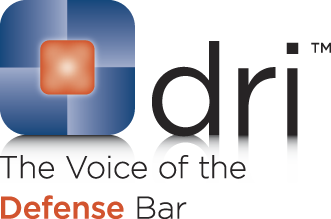 A recent Order in the Eighth Judicial District Court, Clark County, Nevada excluded the testimony of plaintiff economics expert Dr. Stan Smith regarding his opinions on the loss of enjoyment of life suffered by the Plaintiff. Order Granting Defendants Motion in Limine. Jones v. Kelly, Eighth Jud. Dist. Ct. Case No. A-19-803468-C (December 12, 2022).
A recent Order in the Eighth Judicial District Court, Clark County, Nevada excluded the testimony of plaintiff economics expert Dr. Stan Smith regarding his opinions on the loss of enjoyment of life suffered by the Plaintiff. Order Granting Defendants Motion in Limine. Jones v. Kelly, Eighth Jud. Dist. Ct. Case No. A-19-803468-C (December 12, 2022).
Plaintiff was injured in a motor vehicle accident. Plaintiff retained Dr. Stan Smith to provide opinions regarding the loss of household services, the cost of future care and the value of “reduced enjoyment of life” otherwise known as hedonic damages. Dr. Smith placed the value of Plaintiff’s hedonic damages at between $749,749 to $1,249,594.
Nevada has recognized the concept of hedonic damages since the groundbreaking case of Banks v. Sunrise Hospital, 120 Nev. 822, 102 P.3d 52 (2004).
In their Motion in Limine, the Defendants argued that opinions of Dr. Smith did not meet the foundational requirements for an expert to provide opinion testimony as set forth in the case of Hallmark v. Eldridge, 189 P.3d 646, 650 (Nev. 2008). Those requirements are:
(1) he must be qualified in an area of “scientific, technical or other specialized knowledge;”
(2) his specialized knowledge must “assist the trier of fact to understand the evidence or to determine a fact in issue;” and
(3) his testimony must be limited “to matters within the scope of his knowledge.”
Defendants argued that the methodology used by Dr. Smith was not reliable, making the testimony irrelevant. Defendants pointed to other Nevada District Court cases in which the opinions on hedonic damages experts were excluded. Decision and Order Price v. Folks, Eighth Jud. Dist. Ct. Case No. A-13-680895-C (June 27, 2016) and Order Granting Motion In Limine No. 3, Byers v. The Home Depot U.S.A., Inc., Eighth Jud. Dist. Ct. Case No. A-13-682404-C (Dec. 23, 2015). Defendants cited to cases in the federal courts and other state courts that excluded Dr. Smith’s testimony because the methodology was not reliable. Finally Defendants argue that the opinion testimony created unfair prejudice.
Plaintiff responded that other Nevada based courts have found the methodology to be reliable. Knaack v. Knight Transp., Inc., No. 3:17-cv-00172-LRH-WGC, 2019 U.S. Dist. LEXIS 75480 (D. Nev. May 3, 2019) and Farring v. Hartford Fire Ins. Co., No. 2:12-CV-479 JCM (PAL), 2014 U.S. Dist. LEXIS 33488 (D. Nev. Mar. 14, 2014). Plaintiff argued that the reliability of Dr. Smith’s “willingness-to-pay” theory was not in doubt. Plaintiff claimed that her estimates of her levels of impairment would go to the weight and not the admissibility of Dr. Smith’s testimony.
In its order striking Dr. Smith’s testimony, the Court found that there were no medical experts opining that Plaintiff had any diminished capacity or ability to enjoy life and that Dr. Smith’s opinions were based more on the unsworn and uncorroborated statements of the Plaintiff. Dr. Smith’s opinions thus were based more upon speculation and generalization than specific facts related to Plaintiff’s case. Furthermore, the “willingness-to-pay” methodology used by Dr. Smith is generally intended to be used in settings not associated with personal injury claims. The Court found that Dr. Smith’s methodology was not generally accepted in the forensic community based on a 2008 survey in the Journal of Forensic Economics which says that 83.8% of responding economists indicated they would not calculate hedonic damages for a personal injury case and that 82.2% of respondents would be willing to critique such a report by a plaintiff’s expert.
Please contact Michael C. Mills, Esq. at 702.240.6060 x114 to further discuss the concept of hedonic damages.
 Follow
Follow Email
Email


